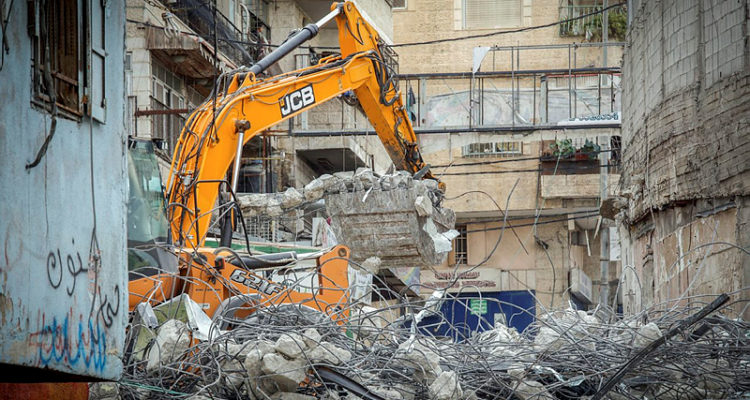Jerusalem Mayor Nir Barkat slammed the European Union Sunday.
By TPS
Outgoing Jerusalem Mayor Nir Barkat slammed the European Union Sunday, over its condemnation of the destruction of 20 illegally built structures in the Shuafat Refugee camp by the Jerusalem Municipality on Wednesday.
The EU is “more interested in politics” than the in the interests of the people of Shuafat, Barkat said.
Shuafat is a Palestinian refugee camp in the east of the city within the Jerusalem municipal borders, which, for years, has relied on services from the United Nations Relief and Works Agency for Palestine Refugees (UNRWA), as Jerusalem’s municipal services kept out of the camp, due to it being located on the opposite side of the security barrier, despite being within the city’s municipal limits.
According to Barkat, the demolitions are part of Jerusalem’s municipality taking responsibility for the camp, after years of relying on UNRWA’s “failing” services.
“Even residents of the Shuafat Refugee camp are tired of the hypocrisy of the EU, which prefers politics over the actual interests of the people,” said Barkat, “According to all the polls and inquiries, residents of Shuafat are sick of UNRWA’s failing sanitation, education and welfare programs. The residents are congratulating the municipality’s actions, which include the recent demolition, which was carried out per their request, to get rid of buildings that endangered the camp’s youth.
“The EU must realize that it is time to stop with the refugee lie,” Barkat continued, ”Jerusalem is a sovereign, unified city. It does not have refugees – it has residents, and from now on, they will receive services from the municipality just like every other resident.”
In May, the Jerusalem Police opened its first station in Shuafat, which came along with a promise from Barkat that the city will begin investing more resources in law enforcement and zoning regulations in east Jerusalem, as well as work to improve residents’ access to sanitation and welfare services.





